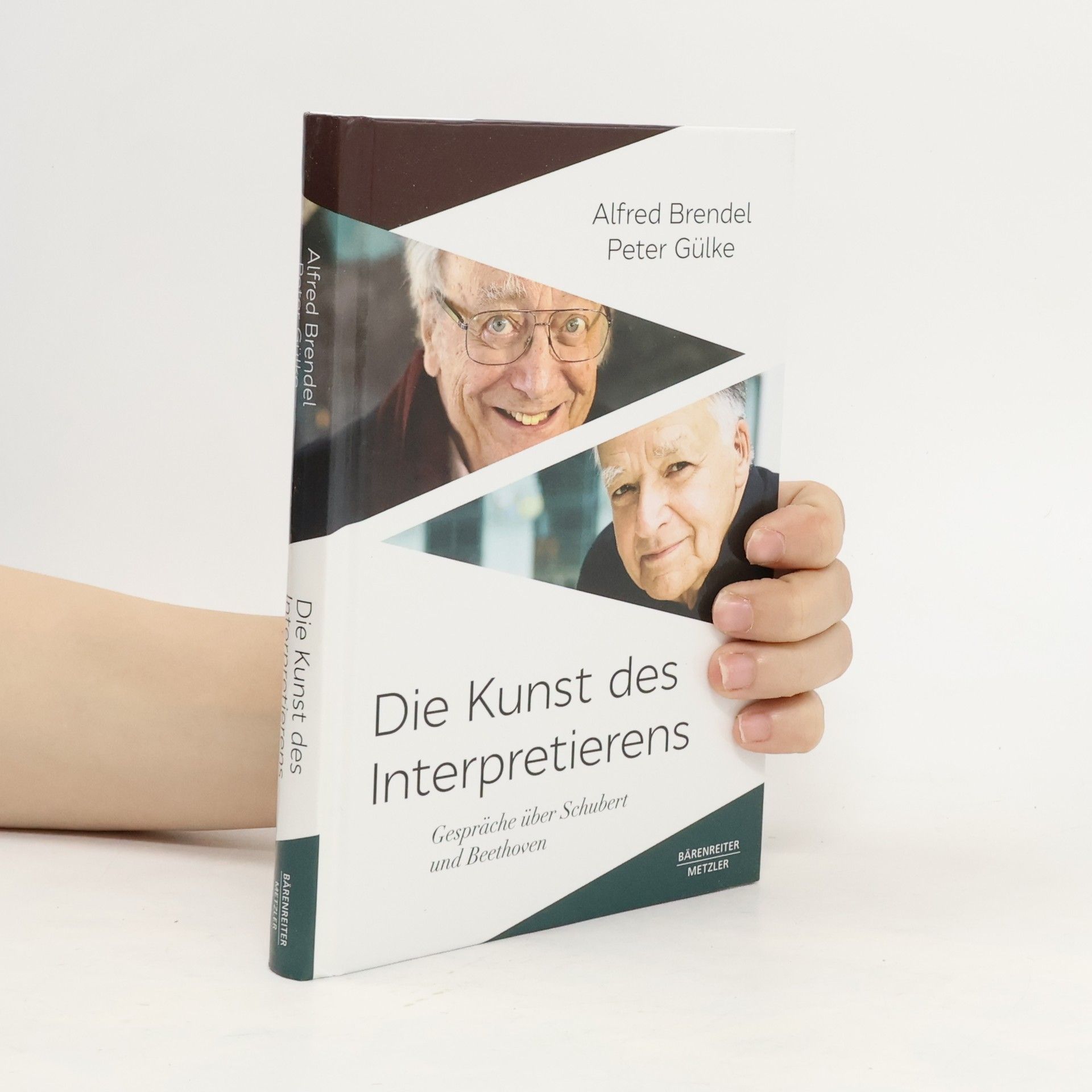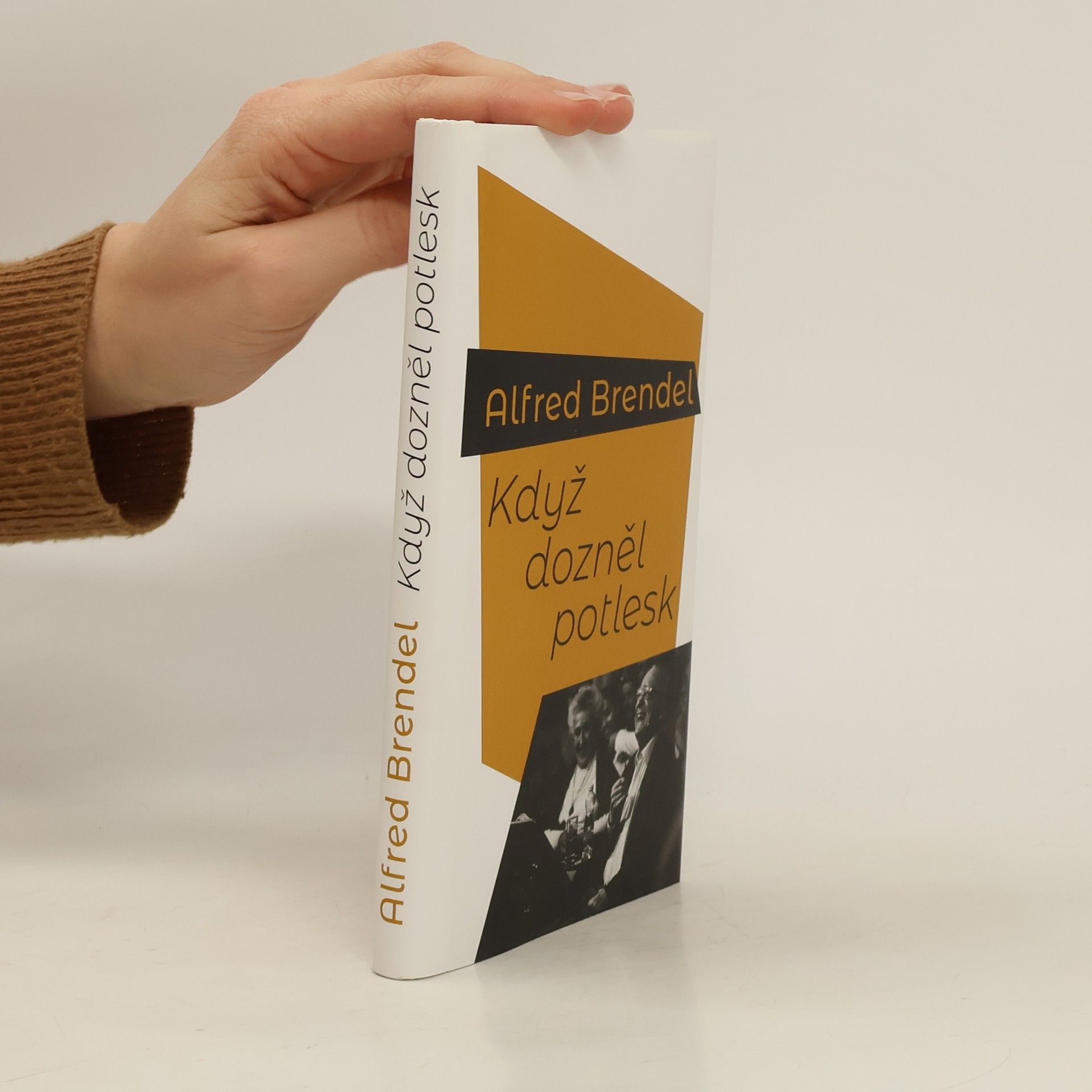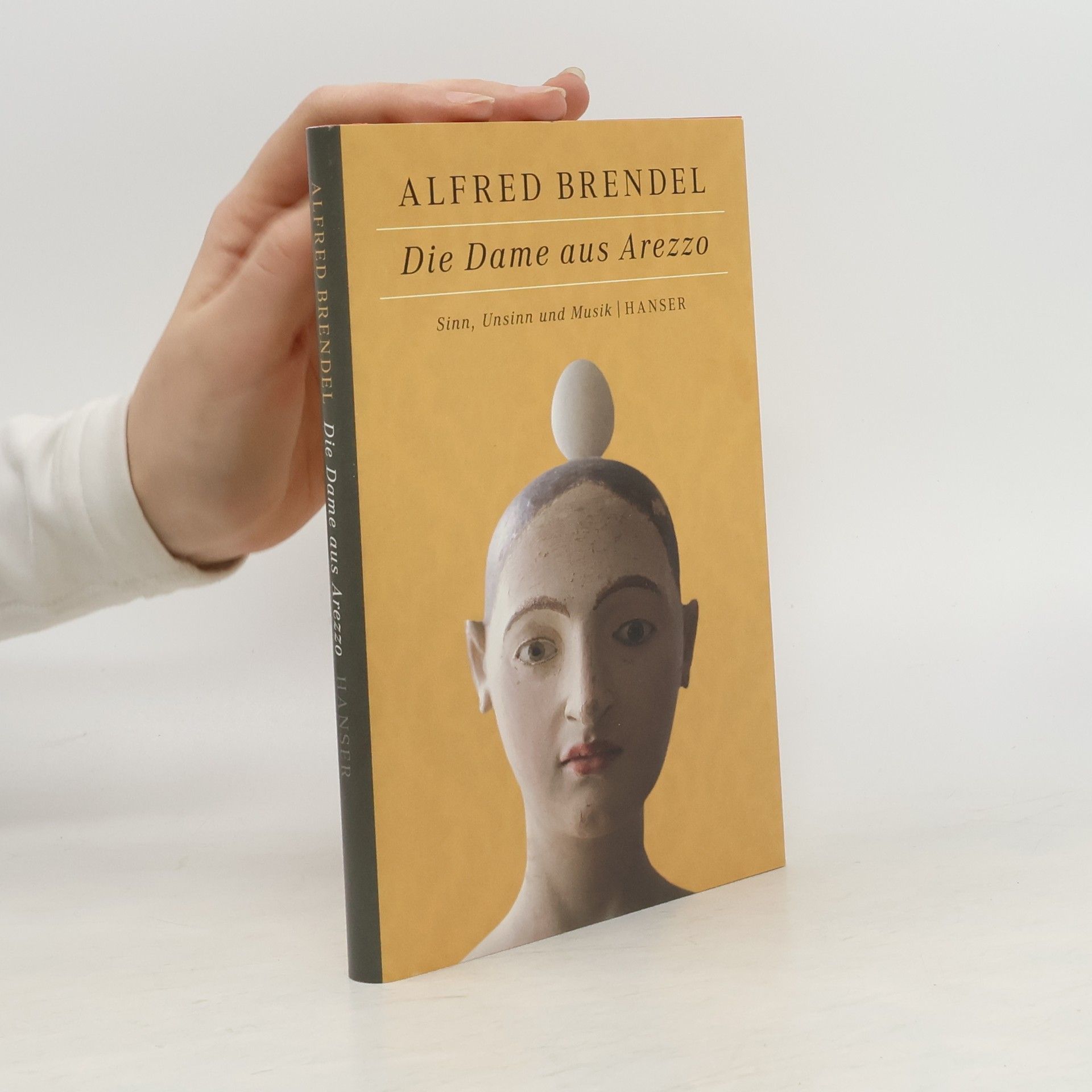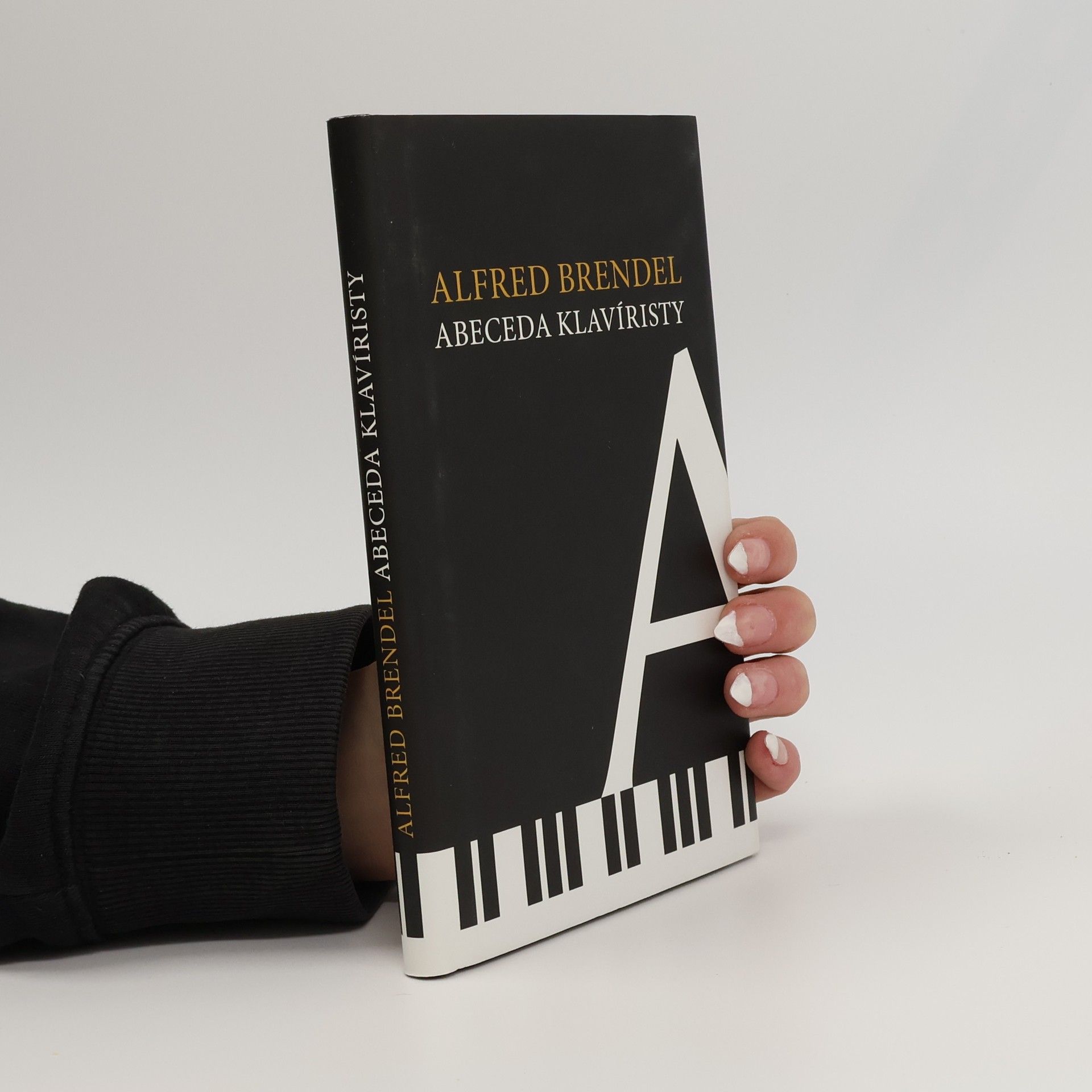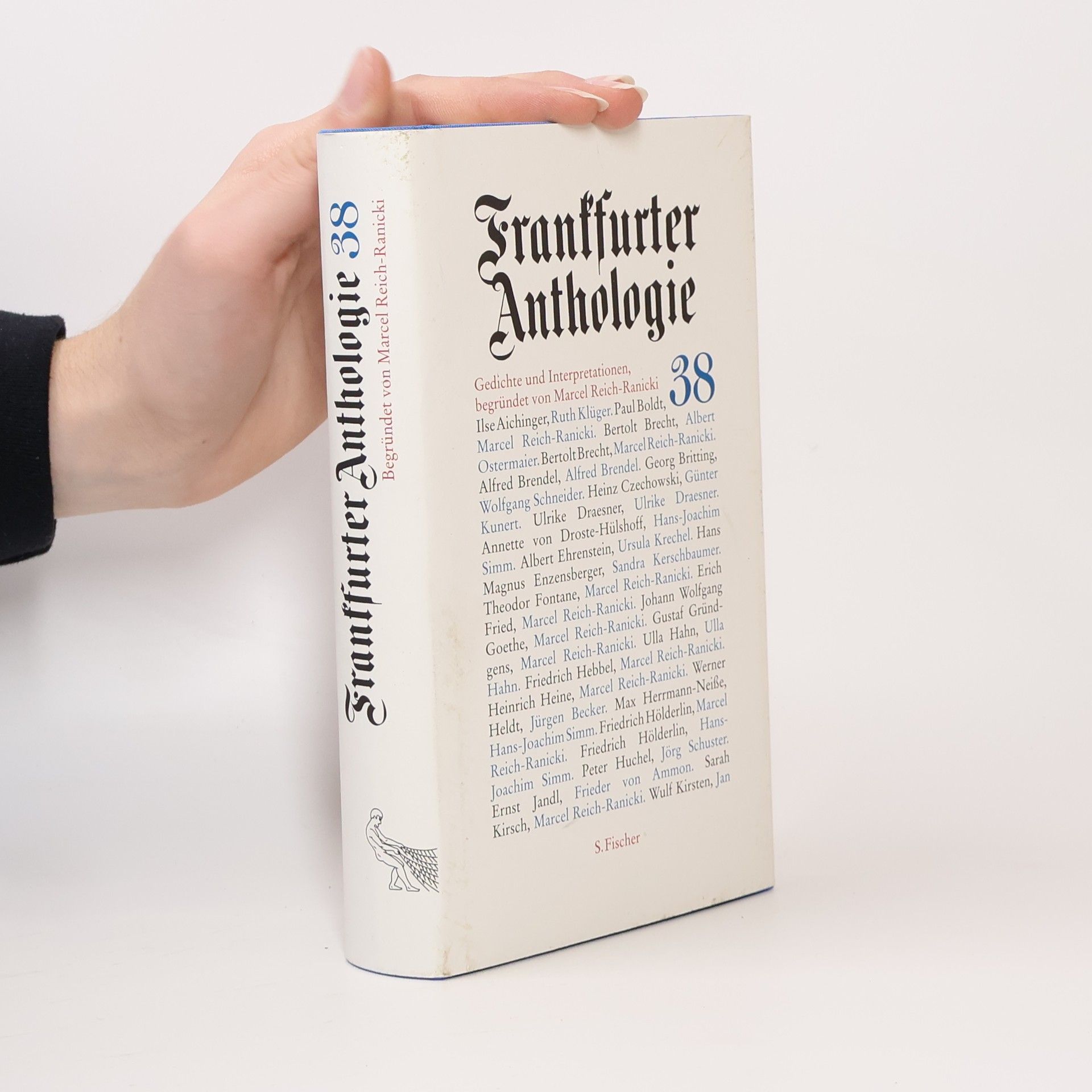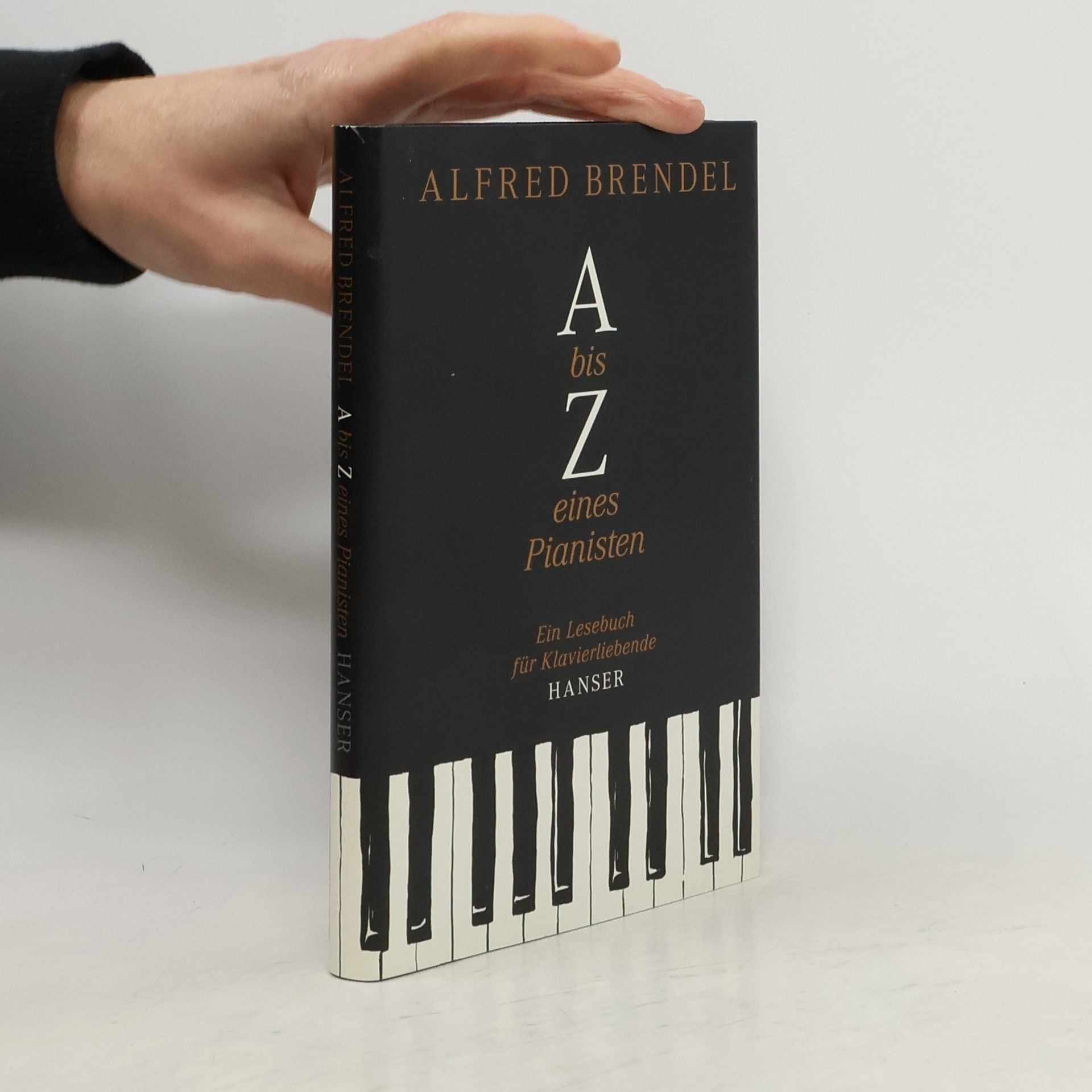'This book distils what, at my advanced age, I feel able to say about music, musicians, and matters of my pianistic profession.' Ever since Alfred Brendel bid farewell to the concert stage after six decades of performing, he has been passing on his insight and experience in the form of lectures, readings and master-classes.
Alfred Brendel Book order (chronological)

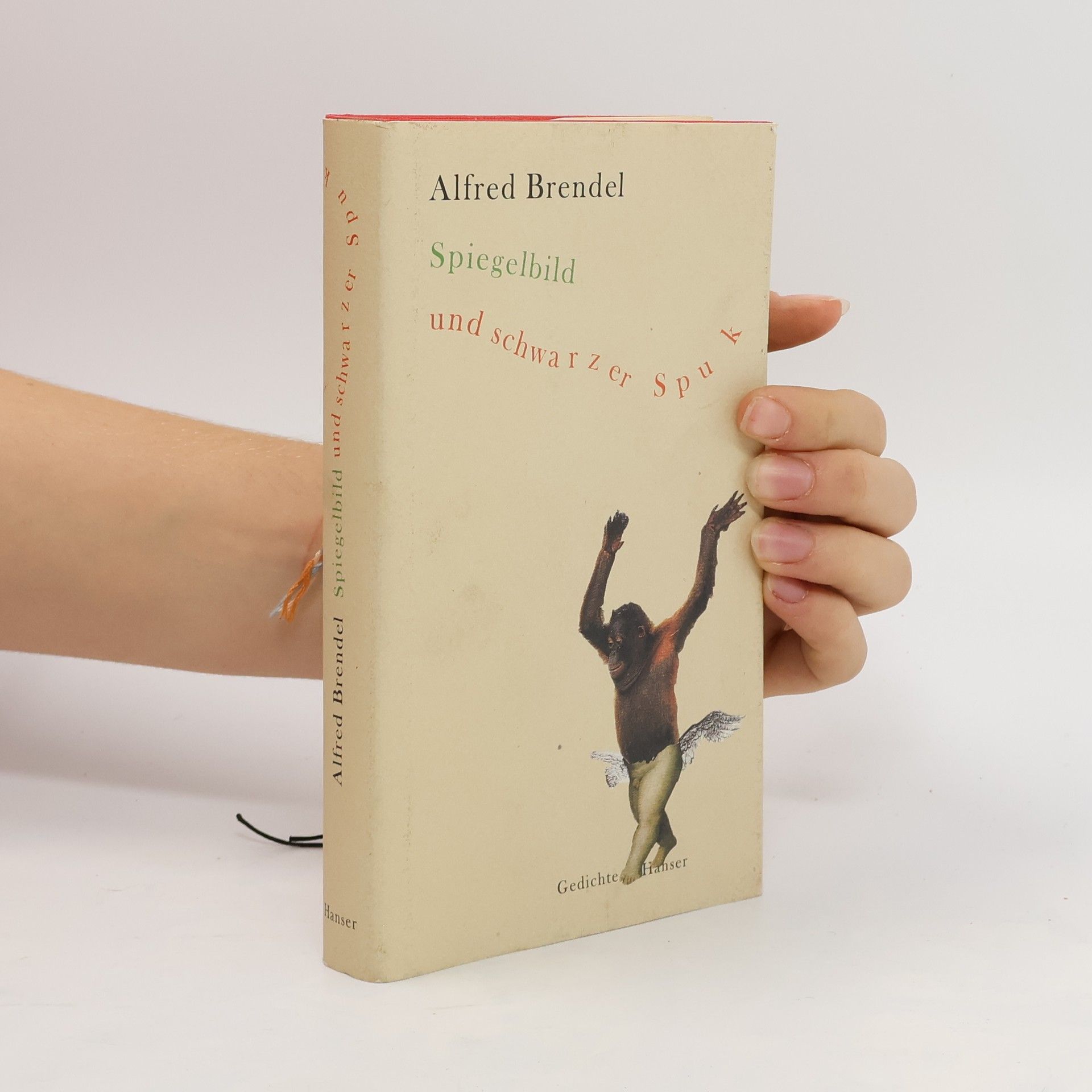
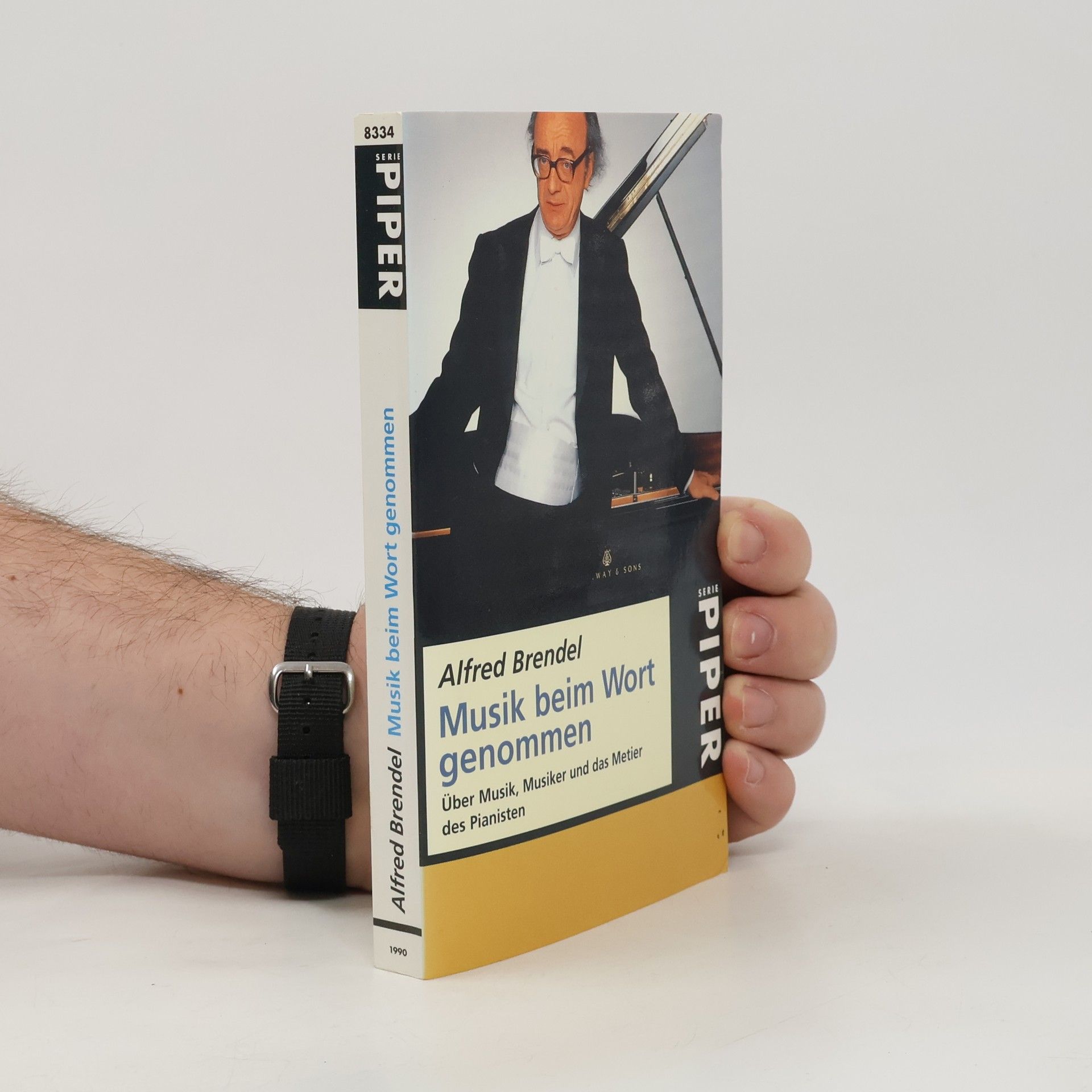
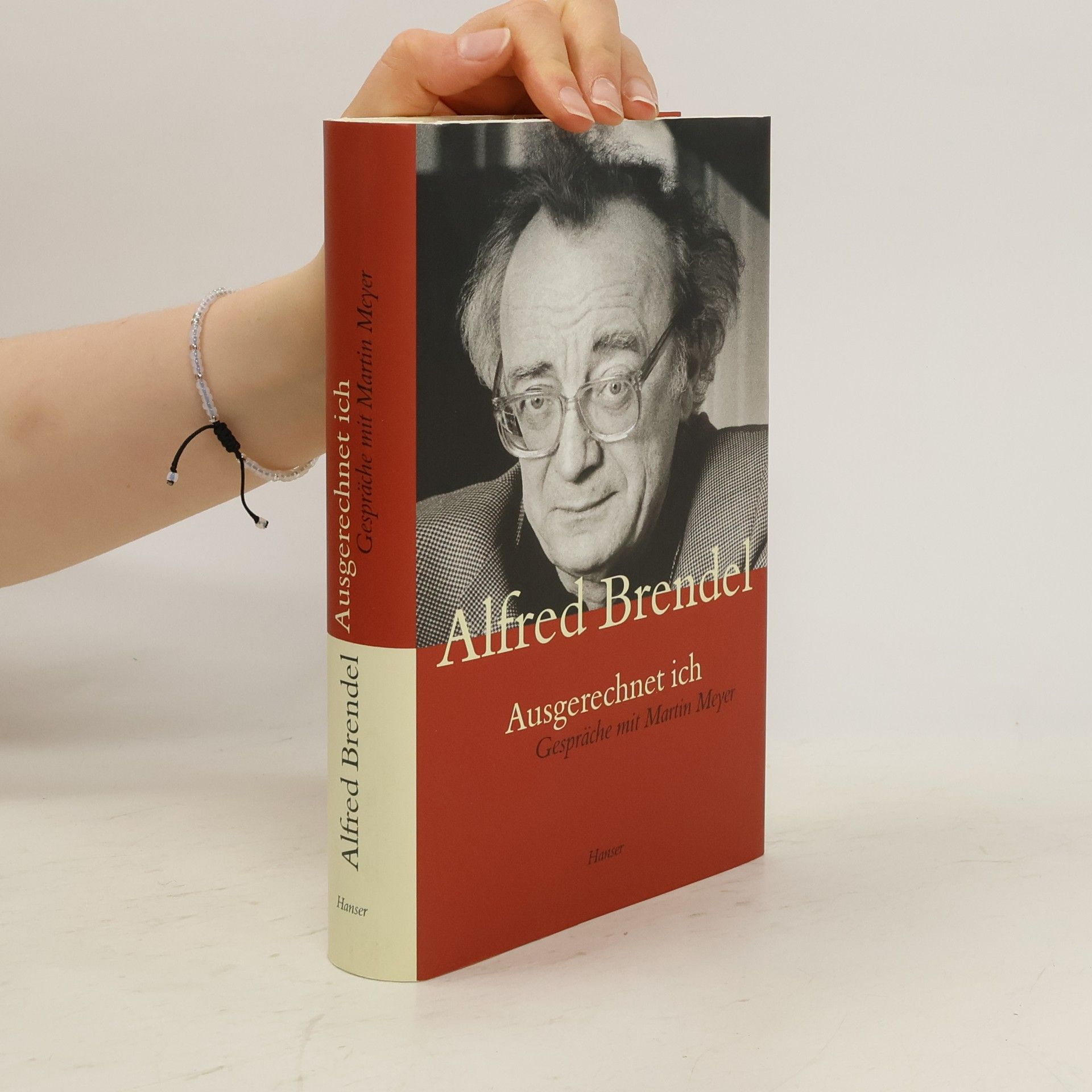


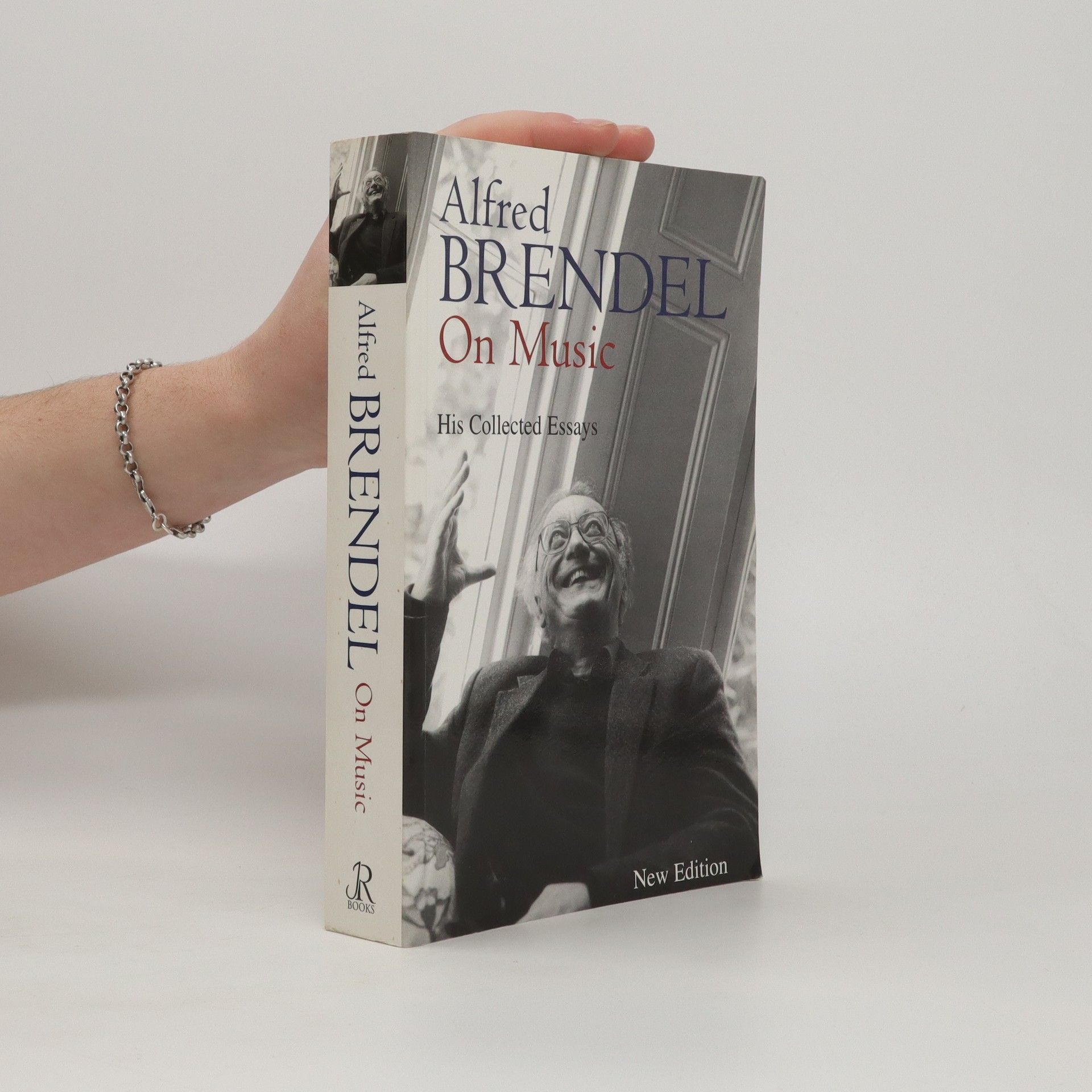
Die Kunst des Interpretierens
Gespräche über Schubert und Beethoven
Alfred Brendel und Peter Gülke pflegen die Kunst des Interpretierens auf einzigartige Weise: Brendel als weltberühmter Pianist, der auch Bücher über Musik publiziert, Peter Gülke als mehrfach für seine Sprach-Kunst des Interpretierens ausgezeichneter Autor, der auch Dirigent ist. In diesem Buch denken sie in einem intellektuell und emotional berührenden Ideen- und Erfahrungsaustausch gemeinsam über die Praxis des Interpretierens nach. Einerseits geschieht dies ganz konkret bezogen auf Schuberts und Beethovens Musik. Andererseits diskutieren sie über Grundsätzliches wie die Frage, welche Freiheit Musikerinnen und Musiker beim Aufführen von Musik haben, und über die Möglichkeiten, sinnvoll über Musik zu sprechen, das heißt: sie sprachlich zu interpretieren.
Když dozněl potlesk
- 128 pages
- 5 hours of reading
Neformální řada spisů Alfreda Brendela se uzavírá knihou rozhovorů a esejů, v nichž na sebe tento legendární klavírista prozrazuje mnohé, nikdy však nesklouzává k „autobiografii" a bulváru. Prozrazuje své preference v literatuře, hudbě a filmu a hovoří též o svých sympatiích k surrealismu a absurdnu. Alfred Brendel (5. ledna 1931) je rakousko-britský klavírista, básník a spisovatel. Bývá považován za jednoho z největších pianistů všech dob. Narodil se v Loučné nad Desnou v okrese Šumperk v rodině nehudebníků. Do svých šesti let žil v Československu, poté se rodina odstěhovala do Záhřebu v Jugoslávii a pak do rakouského Štýrského Hradce. Na hodiny klavíru začal docházet v šesti letech. Pak studoval na konzervatoři ve Štýrském Hradci u profesorky Ludoviky von Kaanové a kompozici u Artura Michela. Studia dokončil u rakouského klavíristy a skladatele Eduarda Steuermanna, a zejména absolvováním mistrovských kurzů švýcarského pianisty a dirigenta Edwina Fischera. Brendel poprvé veřejně koncertoval ve Štýrském Hradci, když mu bylo sedmnáct. Z němčiny přeložila Helena Medková.
Schubert und Haydn treffen Schwitters und Jandl: Kann das gutgehen? Und ob! In Alfred Brendels neuem Buch mischen sich Musik- und Literaturgeschichte, Texte großer Meister des Unsinns stehen neben Texten über die großen Meister der Musik. Der Ernst von Schuberts Winterreise ist eine ebenso zutiefst menschliche Erfahrung wie die Komik eines Christian Morgenstern, und auch Musik kann sehr viel mit Humor zu tun haben, was viele tiefsinnige Menschen bei Joseph Haydn zum Beispiel gar nicht hören. Alfred Brendel öffnet die Ohren und ermutigt zum Unsinn – denn ohne den können wir der Welt auch keinen Sinn abgewinnen.
Alfred Brendel (5. ledna 1931) je rakousko-britský klavirísta, básník a spisovatel. Bývá považován za jednoho z největších pianistů všech dob. Narodil se v Loučné nad Desnou v okrese Šumperk v rodině nehudebníků. Do svých šesti let žil v Československu, poté se rodina odstěhovala do Záhřebu v Jugoslávii a pak do rakouského Štýrského Hradce. Na hodiny klavíru začal docházet v šesti letech. Pak studoval na konzervatoři ve Štýrském Hradci u profesorky Ludoviky von Kaanové a kompozici u Artura Michela. Studia dokončil u rakouského klavíristy a skladatele Eduarda Steuermanna, a zejména absolvováním mistrovských kurzů švýcarského pianisty a dirigenta Edwina Fischera. Brendel poprvé veřejně koncertoval ve Štýrském Hradci, když mu bylo sedmnáct. Od doby, kdy Alfred Brendel přestal koncertovat, se soustředí na předávání svých zkušeností ostatním. Vedle přednášek, workshopů apod. je výsledkem kniha Abeceda klavíristy, která potěší každého, kdo má zájem o techniku, historii klavíru a klavírní repertoár. Erudovaný, vtipný, poučný a hluboce osobní pohled je ideální pro všechny milovníky klavíru, hudebníky a fanoušky hudby. Jakýkoli hudební nástroj je zřídkakdy popsán tak zábavným a inteligentním způsobem.
Sebrané básně: 2 x 2 = 13
- 306 pages
- 11 hours of reading
Kniha 2 x 2 = 13 přináší sebrané básně klaviristy Alfreda Brendela, jednoho z nejvýznamnějších světových umělců. Zatímco jeho interpretace skladeb Mozarta, Beethovena, Schuberta, Schumanna a Liszta se soustředí na minulost a notový zápis, jeho poezie představuje tvůrčí a filozofické sebevyjádření. Brendel čerpá inspiraci z evropské básnické moderny, včetně dadaismu a absurdní literatury, a jeho dílo je oceněno smyslem pro humor a sarkasmus. Tímto způsobem se jeho poetika blíží české básnické tradici, což si autor uvědomuje i díky svým návštěvám České republiky. Harold Pinter, slavný anglický dramatik a nositel Nobelovy ceny, popsal čtení Brendelovy poezie jako potěšení, chválí jeho excentrický a vtipný styl. Alfred Brendel, narozený 5. ledna 1931, je rakousko-britský klavírista, básník a spisovatel, považovaný za jednoho z největších pianistů všech dob. Narodil se v Loučné nad Desnou v rodině nehudebníků a do šesti let žil v Československu, poté se rodina přestěhovala do Záhřebu a později do rakouského Štýrského Hradce. Klavírní výuku zahájil v šesti letech a studoval na konzervatoři ve Štýrském Hradci a u významných pedagogů. Poprvé veřejně koncertoval ve svých sedmnácti letech. Z němčiny přeložil Vít Janota.
Spiegelbild und schwarzer Spuk
Gedichte
Der Pianist als Dichter: Mit seinen komischen und grotesken Versen baut Alfred Brendel eine luftige Brücke zwischen Sinn und Unsinn. So wird bei ihm Beethoven (der, was auch ziemlich unbekannt ist, ein Neger war) als Mörder von Mozart entlarvt oder die bewegende Frage erörtert, was geschah, als Brahms sich in den Finger geschnitten hatte. In Brendels Gedichten - von denen sämtliche in diesem Band versammelt sind - kommt alles und jeder zur Sprache, sogar ein Speckschwein, das am Telefon grunzend seine Lebensgeschichte erzählt.
Alfred Brendel je bezesporu jedním z nejvýznamnějších klavíristů a umělců 20. století. Je historicky prvním pianistou, který nahrál kompletní klavírní dílo Ludwiga van Beethovena. Když firma Philips v roce 1999 vydala prestižní edici „Velcí klavíristé 20. století“, Brendelovi jako jedinému interpretovi věnovala šest kompaktních disků (tedy více než Rachmaninovovi, Rubinsteinovi, Horowitzovi, Richterovi, Gouldovi atd.). Brendel svojí interpretací děl W. A. Mozarta a F. Schuberta zásadně změnil pohled na tyto skladatele. Souborné vydání jeho esejů se ve světě stalo velkou událostí. Brendel je skvělým spisovatelem, esejistou a básníkem. Umí své postřehy, bádání a celoživotní zkušenosti brilantně zformulovat, jeho eseje mají vytříbený literární styl. Je velkým znalcem literatury, filmu, malířství a architektury, jeho široké zaměření prostupuje celou jeho knihou. Brendel vnímá hudbu v širších historicko-kulturních souvislostech a proto je jeho práce objevná jak pro odbornou, tak laickou veřejnost. Brendel je posledním pojítkem s velkou tradicí – byl žákem legendárního Edwina Fischera, jehož učil žák Franze Liszta, jehož učil žák Ludwiga van Beethovena. Brendel je tedy posledním článkem této velké linie, která pochází od Beethovena. V Brendelových sebraných esejích se navíc vzácně propojuje zkušenost významného a zkušeného interpreta s nejvyšší odborností badatele.
Frankfurter Anthologie
Gedichte und Interpretationen Begründet von Marcel Reich-Ranicki
- 336 pages
- 12 hours of reading
Ein Klassiker: Gedichte und ihre Interpretation. Begründet von Marcel Reich-Ranicki »Erschließen, um zu bewahren: Das geheime Motto des Herausgebers hat ein Werk entstehen lassen, das nichts weniger ist als eine Einweihung in die Welt der Poesie.« (Siegfried Lenz) 1974 startete Marcel Reich-Ranicki ein in der Literaturgeschichte einmaliges Unternehmen: Unter dem Motto »Der Dichtung eine Gasse« werden seitdem in jeder Samstagsausgabe der Frankfurter Allgemeinen Zeitung Gedichte aus allen Epochen deutscher Lyrik vor, jedes erläutert von einem namhaften Interpreten. Die Bände der Frankfurter Anthologie fassen die Gedichte und Interpretationen eines Jahrgangs zusammen. Inzwischen liegen über 2050 Gedichte vor.
A bis Z eines Pianisten
Ein Lesebuch für Klavierliebende
Ein ideales ABC des Klavierspiels: kenntnisreich, witzig, aufklärend und persönlich. Alfred Brendel ist der ideale Vermittler für alle Fragen, die das Klavier und die Klavierliebhaber stellen. Von A wie Anschlag, Akkord und Arpeggio bis Z wie Zusammenhang erklärt der weltberühmte Pianist die Geheimnisse, die sich ihm selbst in seiner jahrzehntelangen Praxis gestellt haben. Brendels Vademecum ist ein wunderbares Buch für alle Freunde des Pianoforte, für Musiker wie Musikliebhaber. Es kann ein Konzert nicht ersetzen, aber entscheidend vertiefen - denn so humorvoll und klug ist selten über das große schwarze Instrument geschrieben worden, das bis heute unsere Ohren herausfordert.
